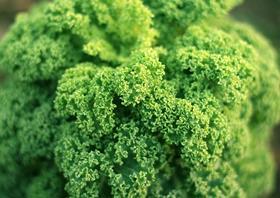
Brassicas are being touted as a preventative of colon cancer after experiments on mice revealed their power to inhibit gut inflammation.
Mice fed on a diet rich in a compound (I3C) created by digesting vegetables like kale, broccoli and cabbage, were protected from bowel inflammation and colon cancer according to research by scientists at The Francis Crick Institute.
The I3C chemical was found to stop tumour growth in the mice as well as making the tumours more benign.
Scientists said the breakthrough was the first time concrete evidence of how brassica consumption can inhibit and prevent colon inflammation and cancer.
Their experiment showed brassica consumption activated a protein called the aryl hydrocarbon receptor (AhR), which acts as an environmental sensor passing signals that protect us from inflammatory responses to the trillions of bacteria that live in the gut.
Dr Amina Metidji from the Francis Crick Institute said: “We studied genetically modified mice that cannot produce or activate AhR in their guts, and found that they readily developed gut inflammation which progressed to colon cancer,” explains first author Dr Amina Metidji from the Francis Crick Institute.
“However, when we fed them a diet enriched with I3C, they did not develop inflammation or cancer. Interestingly, when mice whose cancer was already developing were switched to the I3C-enriched diet, they ended up with significantly fewer tumours which were also more benign.”
The team hope to translate their findings into human studies in the future to confirm the way in which vegetables help prevent cancer and tumour growth.
Professor Tim Key, Cancer Research UK’s expert on diet and cancer, said: “This study in mice suggests that it’s not just the fibre contained in vegetables like broccoli and cabbage that help reduce the risk of bowel cancer, but also molecules found in these vegetables too.
“This adds to the evidence that a healthy diet, rich in vegetables, is important. Further studies will help find out whether the molecules in these vegetables have the same effect in people, but in the meantime there are already plenty of good reasons to eat more vegetables.”



